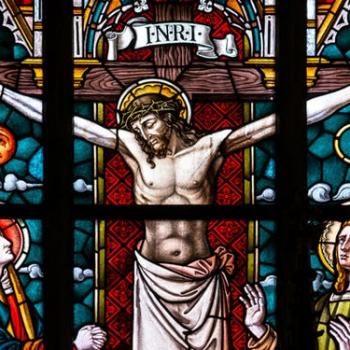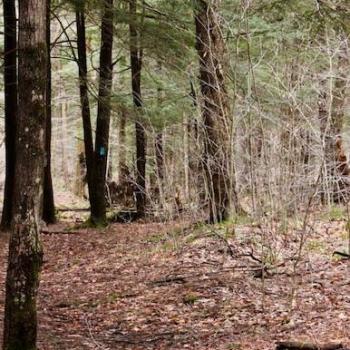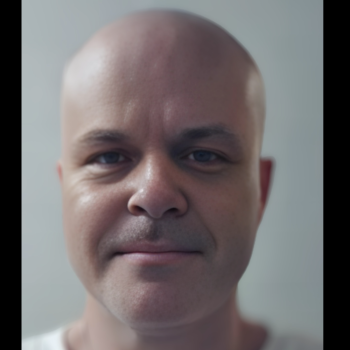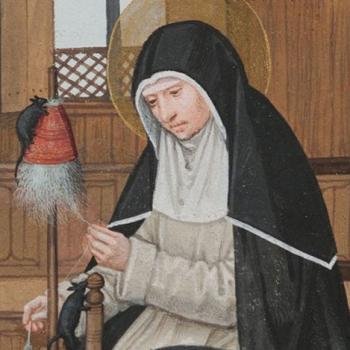A God with No Name: Excerpt
I have seen the wind… or thought I had at least.
Not in the way the morning breeze can bend a field of grain or rustle the leaves of scattered trees. Not even in the way of a hurricane sending sprays of sea-foam into the air or crashing waves against the rocky shoreline like an implacable foe throwing itself against unyielding castle walls. I mean that as a child I sensed an animating force behind all things, as if nature itself was imbued with the spirit of a living god, a sentient (though ghostly) force that moved through all things upon the earth.
I don’t carry within me that same sense anymore. I don’t know the exact moment when I stopped seeing the world in that way, I just noticed one day that it was gone. Looking back on it now, I sometimes wonder if I ever truly saw that wind at all. As I grew to maturity did I lose a secret sense that only children may possess? Was it inevitable that it should happen in this way, a simple consequence of growing older and leaving one’s childhood behind? Or does the relentless acquisition of knowledge over one’s lifetime simply leave no room for such ideals?
It is worth remembering in this modern era, this age of ever increasing knowledge and enlightenment, that although that sense of the divine is quickly disappearing from our world, there was once a time in the history of our species when the first thoughts of the supernatural were just coming into being. For our ancestors once saw these same winds too, somehow gained this new ability to sense a mystical force infusing all of life. Somewhere in our long history it was suddenly there when it hadn’t been before. Perhaps this was the moment when we became truly human and separated ourselves from our primate cousins. For suddenly we began to worshipthe gods and ethereal creatures that inhabited every rock and tree and who in turn seemed to shape the forces of nature to our benefit.
It is hard to pinpoint the exact moment when we first gained this sense of the divine. Perhaps it dawned upon us gradually rather than all at once, but at some point in our ancient past the first celestial insights began to stir in the brains of our cave-dwelling ancestors. As they stared deep into the firelight in their rocky abodes each night or gazed up at the stars of the sky in wonderment, the first thoughts of divinity began to form. And as this budding sense of self-awareness grew and flowered the gods began to take on an actual shape and a life of their own. Soon we would begin to bury our dead with ritual ceremonies, place flowers around our graves and leave tools for the journey to the afterlife. In time the first objects of worship would begin to appear. These were the first footsteps of the gods upon the earth.
It was a simpler time and we worshiped simple gods at the dawn of our humanity, gods that appealed to our baser instincts and needs. We worshiped whatever we could not understand and sought protection from that which we feared the most. In a way the gods were there in those early days to help us make sense of the world around us, their purpose to match a rising instinct we hadn’t even been aware of until that moment, for as with our fellow animals we had never had such thoughts before. But as we developed into a species all our own, the gods evolved along with us.
As the millennia slowly ticked away we transformed ourselves from roving bands of hunter-gatherers, chasing herds of beasts across a world of bitter ice and snow, to prosperous farmers settling on the newly fertile lands so lately emerged from the crushing glaciers of that passing age. As populations grew and trade abounded, the first great city-states began to form. Knowledge was amassed along with wealth, and art as well as music and culture were established. It was a golden age.
Yet as society progressed the gods began to demand ever more from us. Eventually, simple tokens left at the foot of sacred trees and stones were not enough to satisfy the demands of these newer deities. Altars were built and sacrifices made upon those fiery places. Religious protocols were set in place. The gods were named and given personalities of their own. Like mercurial kings and emperors each one had their quirks – their peculiar peeves and pleasures and ways in which they desired to be worshiped. Some embraced violence and craved the taste of human flesh while others abhorred the practice. Some of the gods demanded chastity while some preferred to be worshiped through bizarre sexual rites. Some gods were dark and treacherous while others were benevolent and kind.
And when these measly city-states were no longer enough to fuel the ambitions of their great and mighty leaders (or the gods to whom they prayed), they bent their backs to conquest and legions of men swept over the earth, establishing the first great empires of their time. These armies brought civilization on the edge of their swords, culture and religion with their chains. The gods who helped their side to victory shared in these rich rewards as funneled wealth and prestige poured into their temples. And as empires grew more complex and interconnected so too did the role of the gods. Now there were pantheons of gods and goddesses with complicated histories to memorize; rules and rituals and technicalities to which one must adhere; and punishments and rewards to be distributed. Scores of full time priests were needed to keep track of it all. The first religious institutions were thus born and worked to support the authority and the power of their kings.




